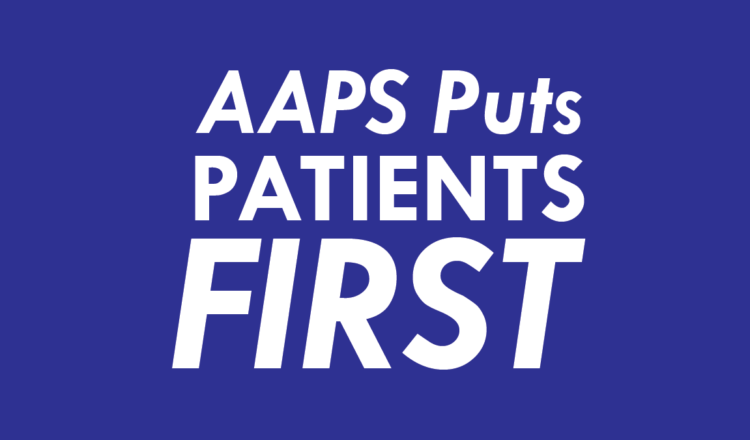AAPS President Marilyn Singleton, MD, JD issued the following statement, on behalf of AAPS, regarding the CVS-Aetna merger:
AAPS remains concerned for patients despite the Department of Justice Antitrust Division’s determination that the CVS-Aetna merger would not present horizontal or vertical competition concerns other than the Part D plan (PDP) overlap.
We disagree with this finding. As outlined in our letter to the DOJ objecting to the merger, primary care physicians are at risk of being squeezed out of the marketplace to the detriment of patients.
The DOJ itself notes the benefits competition has brought “[C]ompetition between [CVS and Aetna’s PDPs] has led not only to lower premiums and out-of-pocket expenses but also improved drug formularies, more attractive pharmacy networks, enhanced benefits, and innovative product features.” (Competitive Impact Statement, pg. 5, line 2-5).
We would argue that the same concerns the DOJ expresses regarding harm to competition in the Part D plan market still exist in the market for primary care services. The DOJ states:
Neither entry nor expansion is likely to solve the competitive problems created by the merger between CVS and Aetna. Recent entrants into individual PDP markets have been largely unsuccessful, with many subsequently exiting the market or shrinking their geographic footprint. Effective entry into the sale of individual PDPs requires years of planning, millions of dollars, access to qualified personnel, and competitive contracts with retail pharmacies and pharmaceutical manufacturers, and companies must establish sufficient scale quickly to keep their plans’ costs down. (Competitive Impact Statement, pg. 6, line 13-18).
Physicians attempting to open a neighborhood private practice or small pharmacies will not have the “millions of dollars” available to CVS. CVS is in the position to steer patients covered by Aetna to receive their care from CVS-run clinics, instead of from their own trusted physician. Moreover, the patients in the name of convenience (but not necessarily cost savings or quality) would get their prescriptions from CVS.
The merger boasts price, access, choice, and convenience. The choice is the CVS store on Main Street or Market Street.
Studies consistently find that patients overwhelmingly want “personalized provider interactions.” and want time to discuss personal issues other than physical symptoms and medications. While we strongly believe healthcare is an active participant in free market principles, it is difficult to imagine discussing end-of-life issues with a “provider” at the drug store.
Our patients will see higher insurance premiums, lower quality, and fewer novel insurance products that meet their specific needs.




